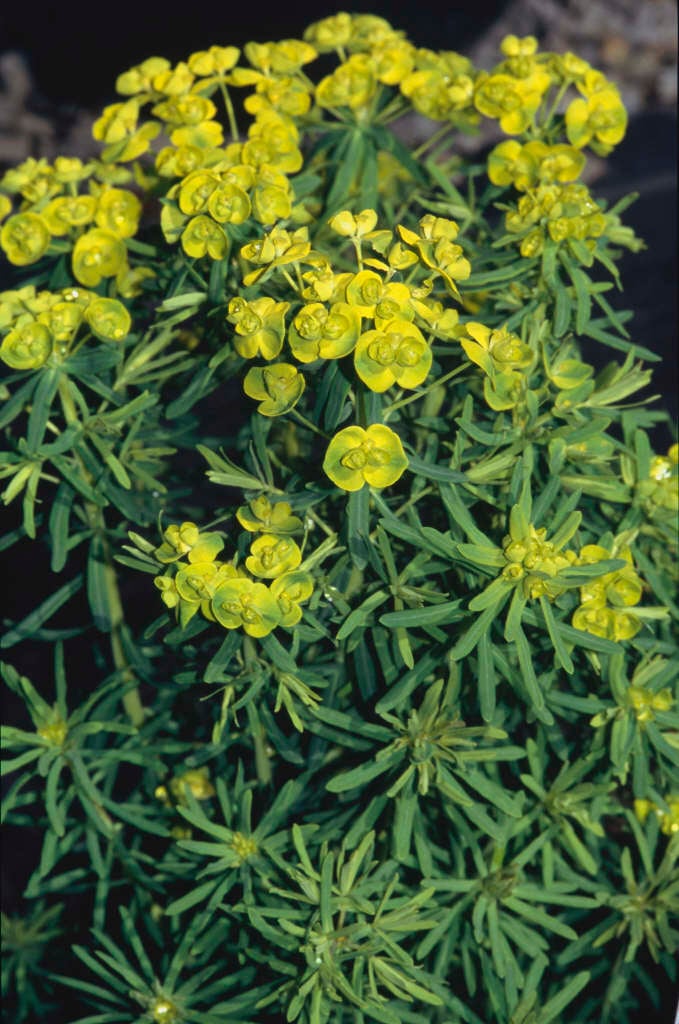Euphorbia cyparissias
cypress spurge
A vigorously spreading rhizomatous perennial with erect stems to 40cm tall, bearing very narrow blue-green leaves, and greenish-yellow flowers in late spring and early summer, often becoming orange with age
Other common names
Bonaparte's crownFaitour's grass
see moregraveyard ground pine
graveyard weed
Irish moss
kiss-me-Dick
love in a huddle
tree spurge
welcome-to-our-house

Buy this plant
Size
Ultimate height
0.1–0.5 metresTime to ultimate height
2–5 yearsUltimate spread
1–1.5 metresGrowing conditions
Moisture
Moist but well–drained, Well–drainedpH
Acid, Alkaline, NeutralColour & scent
| Stem | Flower | Foliage | Fruit | |
| Spring | Green Orange Yellow | Blue Green | ||
|---|---|---|---|---|
| Summer | Green Orange Yellow | Blue Green | ||
| Autumn | Blue Green | |||
| Winter |
Position
- Full sun
Aspect
South–facing or West–facing
Exposure
Exposed or ShelteredDrought resistance
Yes Hardiness
H7Botanical details
- Family
- Euphorbiaceae
- Native to GB / Ireland
- No
- Foliage
- Deciduous
- Habit
- Matforming
- Potentially harmful
- Humans/Pets: IRRITANT to skin/eye, harmful if eaten. Wear gloves and other protective equipment when handling. For further information and contact numbers regarding pets, see the HTA guide to potentially harmful plants
- Genus
Euphorbia can be annuals, perennials, shrubs or succulents, with milky sap and small flowers held within cupped, often colourful bracts
- Name status
Correct
- Plant range
- Europe
How to grow
Cultivation
Grow in well-drained soil in full sun. Has the potential to become a nuisance if not managed well. See Euphorbia for further advice
Propagation
Propagation is by division in early spring or propagate by seed in autumn or spring
Suggested planting locations and garden types
- Coastal
- City and courtyard gardens
- Cottage and informal garden
- Wildlife gardens
- Flower borders and beds
- Banks and slopes
Pruning
In early spring, cut back to base
Pests
Generally pest-free
Diseases
May be susceptible to a rust
Get involved
The Royal Horticultural Society is the UK’s leading gardening charity. We aim to enrich everyone’s life through plants, and make the UK a greener and more beautiful place.